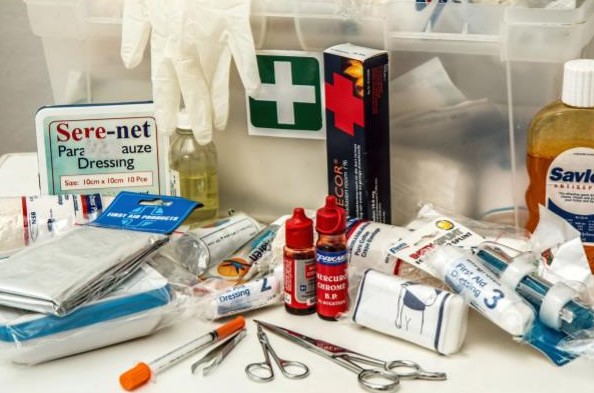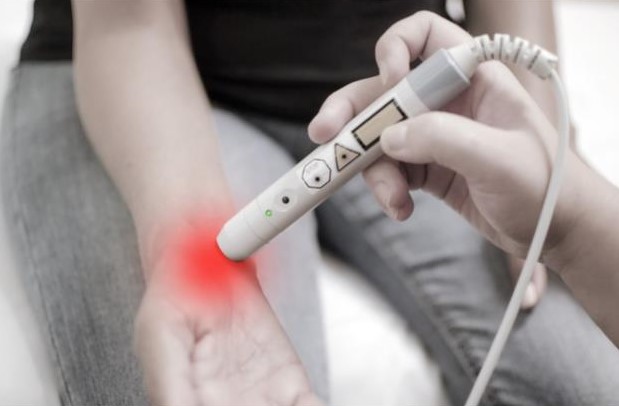30
Jul 2018
10 Tips to Help Parents Survive Their Child’s Hospital Stay
Published in Tips on July 30, 2018

Any parent who has suffered through a child’s hospital stay knows that this is one of the most difficult things in life to endure. No matter how serious the illness or disease, there is always cause for concern. Thanks to the advances in modern medicine and a totally new way of approaching paediatric healthcare, parents can find better ways of coping with the stress.
One mother wrote about the trials and tribulations she and her husband endured during their daughter’s hospital stays totalling more than six months, beginning at birth. The child’s name is Violet, and she was born with congenital heart disease. During those six months, Violet underwent a total of nine operations, three of which were open heart surgeries.
Not only were Violet’s parents there during the uncertainty of surgery, but they suffered with their little girl through endless blood draws, minor procedures and X-rays. According to mum, none of what are referred to as “minor” are minor in the eyes of a parent who is on the sidelines watching their child endure the poking and prodding.
The following tips are offered by Violet’s mother who had to learn, with her husband Dan, to deal with the bright, glaring lights of paediatric ICU, all the while knowing that each day could offer a ray of hope or the worst possible news they could imagine.
A New Approach on Paediatric Healthcare
As a backdrop for the following tips Violet’s mother offers, it is important to understand that there are more than two million children who are not newly born admitted to hospitals in the United States each and every year. As the result of advances in research and training, hospitals across the country are saving record numbers of lives and in the process, also offering better levels of care.
Much of this is due to major changes in the way healthcare approaches paediatric care. There was a time when parents were expected to leave their children in the care of hospitals and given limited access to and visits with their hospitalized children. There has been a huge shift in the paediatric mindset that now recognizes the importance of the role parents play in their children’s recovery.
Not only are parents now encouraged to actually stay in the hospital with their children, but they are also encouraged to begin learning some of the skills they will need at home when their children are discharged. Some learn to administer specific medications while others learn to operate medical devices and equipment their children will rely on at home.
According to Tricia Hiller, the Maria Fareri Children’s Hospital director of the Child Life and Creative Arts Therapy Department, children whose parents are more involved have increased odds of doing better at home once discharged. In looking at her personal experiences and the shift in the paediatric healthcare mindset, Violet’s mum offers the following tips to help other parents become better advocates for their children.
1. Offer what you know about your child – you are the expert
The hospital staff are obviously more informed about medical matters than you are, but the one thing you do know is your child. Sometimes treatment is altered a bit based on the behaviour and emotional state of a patient, and this is what you are personally the expert in. Don’t be afraid to tell the hospital staff what you know about your child, including any fears they have or things which make them uncomfortable. Not only will this help your child feel more comfortable in the hospital, but the staff will have a better perspective on working with your child as well.
2. Be with your child as much as you possibly can
As mentioned above, hospitals are now encouraging parents to spend as much time with their child as they possibly can. Parents are even asked to stay the nights with their children because this eases the stress a child endures and helps relieve some of the pressure on nurses and aids as well.
3. Don’t Be Afraid to Ask Questions
The obvious truth is, you are not a medical professional. Don’t be afraid to ask questions, especially if the medical terminology is a bit too deep for you. Also, don’t be afraid to ask about alternatives in treatment if available and it is even okay to ask why any procedure or medication is being prescribed. The more informed you are as a parent, the better care you can give and the better your decisions will be going forward.
4. If something feels wrong, don’t be afraid to report it
According to Amy Kratchman, a family consultant working at The Children’s Hospital of Philadelphia, it is always better to be safe than sorry. In her words, “It’s always better to confirm any detail that doesn’t seem right.” If a medication doesn’t look right or a procedure isn’t happening in a manner you were told to expect, say so! Don’t be afraid to ask questions if you have any concerns whatsoever.
5. Continue being the parent you’ve always been
Because consistency is a key element, experts advise that you should be the very same parent you’ve always been while your child is in the hospital. Hiller says this helps to reassure your children that they are safe and so you should require the same rules to hold in the hospital as are imposed at home. For example, if your child is required to say please and thankyou at home, they should be required to do so at the hospital as well. Children simply feel safer when there is a level of consistency and that feeling of comfort goes a long way in the healing process.
6. Don’t forget the rest of the family needs you too!
When there are other children in the home, it is important to remember that your other children need you too. Don’t forget to plan for them while you are away at the hospital with your sick child. It is vital that you keep to their routine as much as possible. Structure is important in the life of any child, which includes those left at home as well. According to Hiller, it is also vital to communicate with the teachers of your children. Prepare them that there may be periods of acting out and so they should be “prepared for outbursts or missed homework…” If there are grandparents, other family members, or even friends who could help out in your absence, it will be easier to stick to normal routines in the daily life of your family. Whether picking your kids up from school or seeing to dinner, as much as you can keep familiar, the easier it will be for your other children to cope.
7. Be assertive when it comes to your child’s care
Hiller further explains that as a parent, you have the right to be assertive. She says that some things in a hospital setting are non-negotiable such as procedures and medications needed for a favourable outcome. However, some things like taking temperatures rectally can be questioned if your child rebels against that particular method. Perhaps there are other ways of getting an accurate temperature which could be used. Also, you can ask that a hospital bring down a NICU nurse who is usually best with working with children and their tiny little veins. However, anyone adept at drawing blood from kids could be requested. And finally, you do have the right to say no sometimes. While some things, as mentioned above, are non-negotiable, other things may be open to suggestion.
8. Prior to your child being discharged, make sure you understand the plan for at-home care
Before bringing your child home from the hospital, make sure that you understand all the instructions for at-home care. It is vitally important to understand any medications prescribed and familiarize yourself with dosages and times to administer. If medications are set on a schedule which you will not be able to sustain, maybe the dosages and/or times could be tweaked a little. You never know until you ask. Therefore, make absolutely certain you go over every last detail before leaving that hospital to care for your child at home.
9. Ask for a list of any and all warning signs to be aware of at home
There is one thing which becomes perfectly clear when your child is discharged. That would be the fact that nurses and other medical personnel are trained to look for red flags. They have learned to assess the health and wellbeing of the patients in their charge and this may be something you never thought you’d need. Each diagnosis comes with its own set of potential problems and red flags, so asking for a list of what you should be looking for is crucial in caring for your child at home.
10. Don’t be afraid to express your honest feelings
It is also wise to remember that you are a human who has needs as well. Not only have you just dealt with a stressful stay at the hospital, but you may now be asked to work with equipment and medications you are uncomfortable with. According to Kratchman, who had a daughter born with a diagnosis of mitochondrial disease, she voiced the thought that she was “petrified” of the feeding tubes and was then given reassurance and more training before her daughter was discharged. Violet’s mom says that you should never leave the hospital with your child until you feel you can adequately give the necessary care at home. It is okay to have concerns and it is likewise okay to express them.
In the end, paediatric medical advances and parent involvement have proven to be highly effective in offering better outcomes. These 10 tips should help you survive your child’s stay in the hospital and during aftercare as well.





